The Adaptor as Director
I am a director. I am an adaptor. I am sometimes a translator. I am not sure there is a strong difference between the three.
Every adaptation or translation I have done has felt in many ways similar to my directing work, and vice versa. Every time I direct something, it feels like an act of adaptation, even when it is something I myself wrote. Every moment of staging is a choice that changes the context of the words being spoken. I always try to stay true to the writer’s vision, whether it is a playwright or a novelist. But directing is interpretation, and part of interpretation is adaptation.
I know from experience that fidelity to the original is not the goal of every adaptor. But for me, there is no point in adapting a work unless at least its essence, its soul, is what draws you in.
I don’t think I am in any way unique in this. When I saw Gatz, a verbatim stage adaptation of Fitzgerald’s The Great Gatsby created by Elevator Repair Service’s Artistic Director, John Collins, it was clear that he shared that aesthetic. I have chatted with Aaron Posner about his stage adaptation of Chaim Potok’s The Chosen, and he took a similar approach. And one of my favorite productions of recent years, Rachel Dickstein’s stage version of Gertrude Stein’s The World is Round, was also a very directorial reinterpretation of the text.
What I admired about all three adaptations is the same thing that I try to achieve in my own work: fidelity to the deeper meanings and impulses of the original novels, with an ability to translate those novels into truly theatrical terms. When I recently adaptated, Paul Auster’s City of Glass, (which was 90 percent verbatim, with edits), I was taking a book that examined language and making it into a play that examined language, and that language, Auster’s language, was essential.
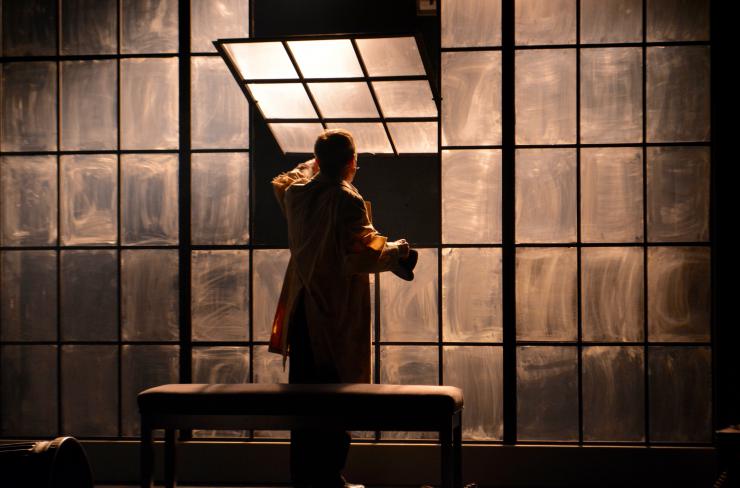
When I did diverge, I tried to let his style sink under my skin, so that the seams would be invisible. The staging involved one actor saying all the text, while two actors/dancers silently embodied the roles alongside him. It was an experimental approach unlike any I have tried previously, but like any time I direct, my purpose was let the technique come from inside the text rather than to impose the technique upon it.
Yet simultaneously the work felt very personal. I invited John Collins for a post-show discussion about adaptation, and someone in the audience asked us how I made sure that the work was essentially Auster’s, not mine. But it is mine, I told her. No matter how important it was to me that the production pleased Auster, it was even more important that I was happy with it, myself. In adapting it, I was also partially claiming it, at least in its stage version. (Fortunately, Auster did enjoy the production!)
When I adapted Philip K. Dick’s Do Androids Dream of Electric Sheep?, the process was a far different one. I used almost none of Dick’s original language, because his language seemed like the less essential part of the work, compared to the ideas and overall style. I changed some major plot points for the purpose of streamlining and logistics. But audiences and critics noted its faithfulness to the original, which I again found gratifying.
![an actor in front of a screen]](https://howlround.com/sites/default/files/styles/body_large/public/B_E_Einhorn_photo%202.jpg?itok=t6pSd9KL)
I know from experience that fidelity to the original is not the goal of every adaptor. But for me, there is no point in adapting a work unless at least its essence, its soul, is what draws you in. And maybe I am also influenced by my work with translation, which directly attempts to filter the original though the lens of my own writing style.
The first adaptation I ever worked on was Eugène Ioneso’s Tales for Children Less Than Three Years Old, his series of short, absurdist stories, originally told to his daughter (based on Karen Ott’s translation of those stories). To accompany that piece, I translated Ioneso’s To Prepare a Hard Boiled Egg, a seven-minute comic monologue on the subject of egg boiling. I was struck at the time with the similarity between adaptation and translation, and I realized that translation, too, lived on the directing continuum. In choosing how Ionesco was expressed in English, I was necessarily adapting the work, and thus adding a layer of interpretation.
For all these projects, I served as the director, at least for the initial production (Do Androids Dream of Electric Sheep? was also given subsequent productions, including one at Sacred Fools in Los Angeles). But a project I did not direct, in some ways, demonstrates the blurry lines between these different functions: The Pig, or Vaclav Havel’s Hunt for a Pig, a show we billed as Havel’s final work but actually had a much more complicated genesis.
I mixed adaptation with translation more consciously with The Pig, or Vaclav Havel’s Hunt for a Pig, a work that went through a number of different lenses before it was performed at 3LD Art + Technology Center. Originally a short sketch written by Havel in 1987, it was adapted by Vladamir Mrozek, a Czech writer, who added in sections of Smetana’s operetta, The Bartered Bride, to comment on that original text. I took that mix and translated it into English (with the help of my Czech tutor, Katerina Lu), then adapted it further by adding dialogue, a framework, and even a silent character. The final work was then directed by Henry Akona, who of course added his own level of interpretation to the piece.
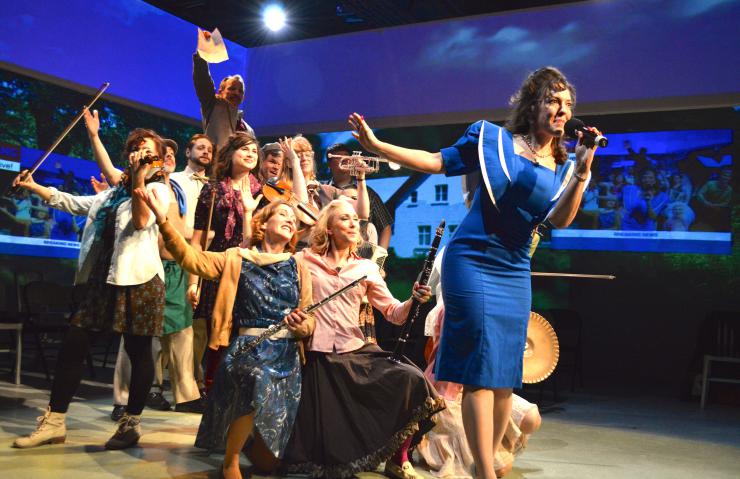
Who was the ultimate author, the adaptor, the director? In some ways, it didn’t matter. Theatre is always a collaboration, and this show was particularly so. And to me, that’s the only way to approach adaptation, or even translation.
Yet simultaneously, I think that any adapator has to make the work personal, to claim it in some way. For myself, in order to truly re-envision the work, to fulfill impulses that lie in that primary text, I put that text aside. At some point, I stop looking at the original novel or play, so that what is performed its own whole, completely written for the stage. I am currently working on an adaptation of Jack London’s The Iron Heel, the first modern dystopian novel, written in 1908 as a socialist propaganda piece. It’s a fascinating text, with all sorts of resonance in modern day America, but the original is very thick with verbiage that works better in a novel than in a play. After I wrote my first draft, I put the book away. I haven’t looked at it since.
Sometimes, no matter how much you love your collaborators, you need a time when they aren’t in the room.

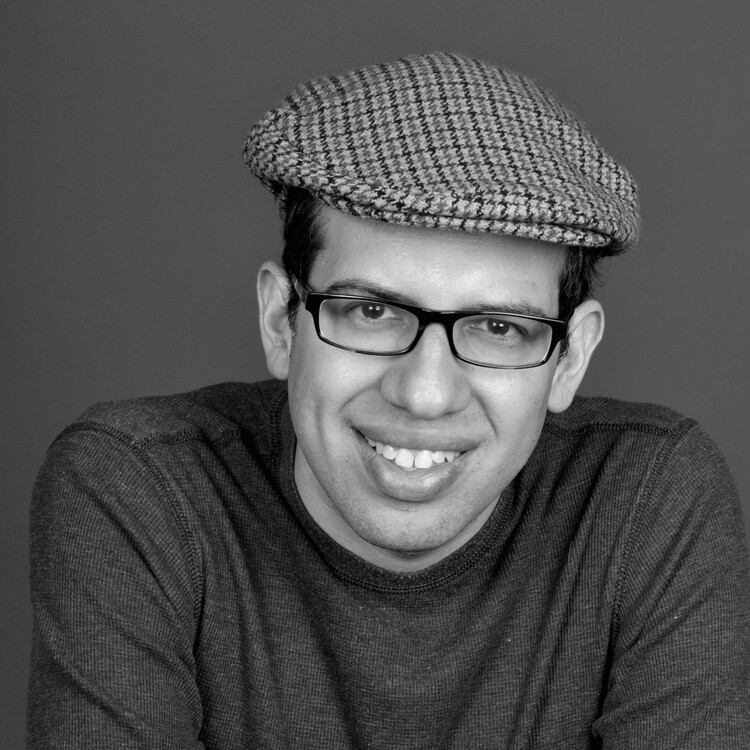
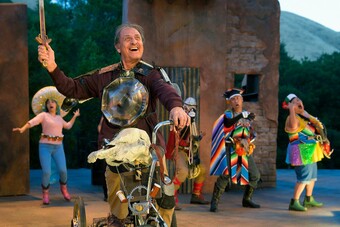



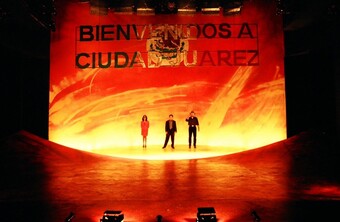
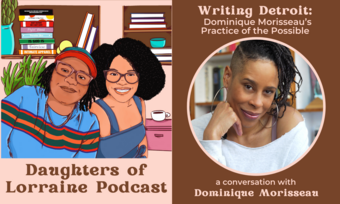



Comments
The article is just the start of the conversation—we want to know what you think about this subject, too! HowlRound is a space for knowledge-sharing, and we welcome spirited, thoughtful, and on-topic dialogue. Find our full comments policy here
Good stuff Edward.
Thanks Brad!